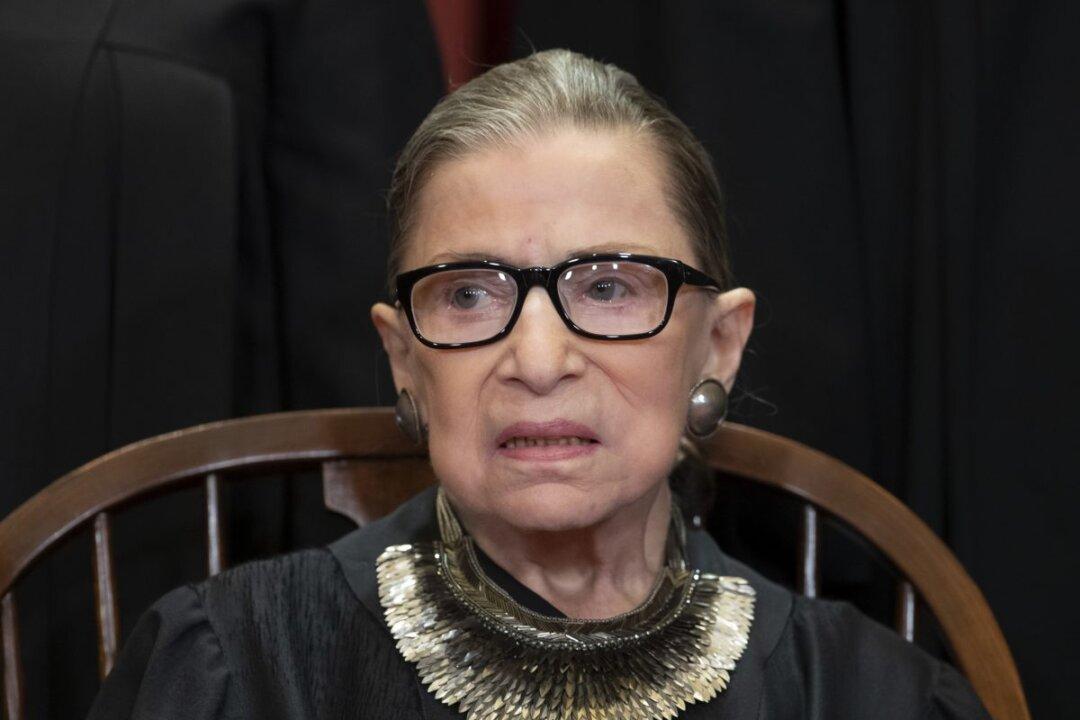Supreme Court Justice Ruth Bader Ginsburg defended Justices Brett Kavanaugh and Neil Gorsuch at an event on July 24, where she pushed back at criticism about her colleagues and called them “very decent, very smart individuals.”
Ginsburg made the comments during an hour-long Q&A session with one of her former law clerks and Duke Law professor Neil Siegel. During the session, Siegel suggested to Ginsburg that “nominees for the Supreme Court are not chosen primarily anymore for independence, legal ability, [and] personal decency, and I wonder if that’s a loss for all of us,” according to the National Review.




